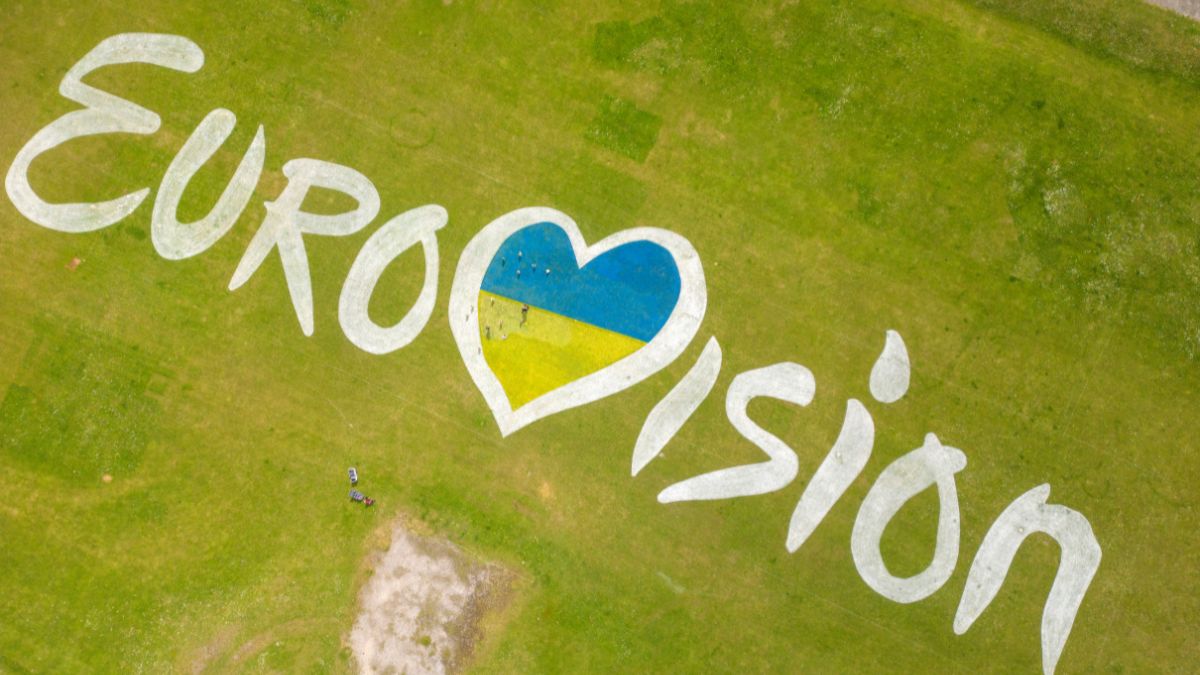Indulging millions of people in the celebration of music, vibrant colors, and the kaleidoscope of cultural diversity found within the European continent, Eurovision has once again descended upon our screens. As the 67th edition of this musical extravaganza kicked off last Wednesday, it graciously reminded us of the pressing socio-political matters at hand through music. But hey, let’s not forget the elephant in the room: The war. You know, the one happening in Ukraine and just Ukraine? Just in case you’ve inconveniently misplaced that tidbit of information somewhere in the Eastern Mediterranean region.
Eurovision is that magical time of year when we gather around our televisions, armed with popcorn, ready to witness the most highly-anticipated and fiercely competitive musical showdown on European soil. It’s an event that brilliantly combines all the elements of political subtlety, like a bull in a china shop disguised as a peacock.
Whether it’s the musicians subtly critiquing society through their performances or certain countries mysteriously missing from the roster, Eurovision has always been a potent cocktail of catchy tunes and political messages. Because let’s face it, who needs to address genocide directly when you can do it while watching someone dancing in a sequined vampire suit? And apparently, we’re perfectly fine with that.
Why is Eurovision honoring Ukraine?
Amidst the weight of the ongoing war in Ukraine, courtesy of Russia’s unrelenting bombardment since February 2022 – though let’s not forget their earlier shenanigans in Crimea back in 2014, but I’ll let the EU handle that one – Eurovision has gallantly transformed into a grand spectacle of political prowess. After triumphing in last year’s contest for the fourth time, Ukraine couldn’t exactly host the event on their own soil, so naturally, Liverpool was the obvious choice to step in and be the surrogate host – because why not?
Last year, needless to say, the contest had a looming depressive air to it. Timur Miroshnychenko, one of the hosts, even presented the contest all the way from a bunker, showcasing exactly the reality millions of citizens in the Eastern country were now forced to face. And while their victory may have been a political statement in itself – though let’s be honest, their performance was top-notch – Eurovision now had the daunting task of showering Ukraine with as much praise as humanly possible.
How is Eurovision honoring Ukraine?
Eurovision has come up with a few ways to honor Ukraine, even though none of them really do anything to stop the war. But let’s not dwell on trivialities like tangible results. One of their brilliant ideas is to showcase a mesmerizing sequence of Ukrainian cities and landscapes before each performance. I guess it’s their way of making us appreciate the beauty of Ukraine and what it used to be before Russia decided they owned the place. Although I must confess, during the first few acts, if I got a bit distracted, I could have sworn Ukraine was performing over and over again.
Now, let’s talk about the performances themselves. Alongside that epic PowerPoint presentation, we’ve been treated to a myriad of acts that either boldly criticize the Russian patriarch (we see you, Croatia), or feature enticing collaborations between British artists and Ukrainian musicians. It’s like a musical tag team match with a dash of political flair. These performances serve as a stark reminder that Ukraine continues to endure genocide while bravely holding its ground against the Russian matriarchs.
Why does it matter if Ukraine is being honored or not?
Don’t get me wrong. Ukraine’s exposure during a widely televised contest will surely do something. Well, I can’t quite put my finger on what that something is, but rest assured, it will have an impact. Even if its primary purpose is to create a sense of normalcy – something that hasn’t been felt since the initial bombardments last year – only the Ukrainian hosts, performers, and attendees will truly find solace in this grand display of performative activism. As for the rest of us, it’s just another way to make us feel like we’re making a difference. We can also indulge in a bit of self-pity while complaining about rising gas prices due to the war.
Aside from all the obvious points surrounding the ongoing war in the Eastern Hemisphere, Eurovision and its contributors also seem to have conveniently forgotten – time and time and time again – that Israel is also in its lineup. I’m not saying Europe is particularly lenient with its guilt-conscience support for Israel, but well, Russia would probably say it takes an ethnocide to know one. Oh, the delightful moral complexities of Eurovision.
On a more serious note, as a European, I can’t stress enough that Ukraine is still being continuously attacked and targeted by Russia, and we all feel it in one way or another. Unfortunately, it does come off a bit too performative when something that has been occurring since 2014 is suddenly being displayed for millions of people across the globe, as a circus display. The timing is especially iffy when you consider the icing on the cake that is Israel’s consistent participation in this musical fest.
There is, inherently, nothing that anyone can do when it comes to Eurovision’s attempt at subtlety in its performative activism, but for once, let’s not pretend that it is anything but a theatre play.

